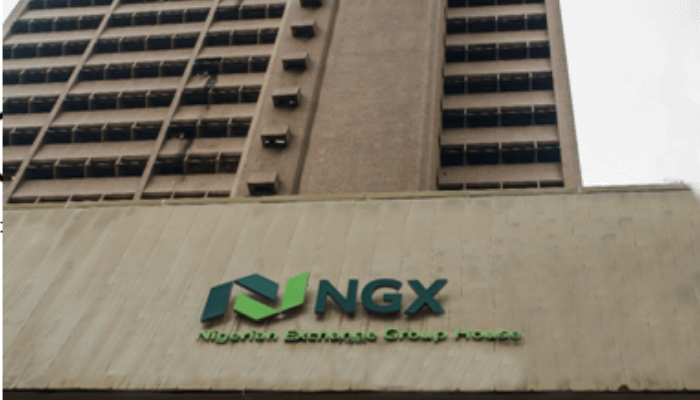The Nigerian Exchange (NGX) closed Monday’s trading session on a mildly positive note, with the All-Share Index (ASI) recording a slight gain of 0.18%. The performance, though modest, reflected a complex mix of investor sentiments shaped by corporate earnings expectations, macroeconomic conditions, and recent regulatory announcements.
At the end of trading, the NGX ASI increased by 179.66 points to settle at 99,665.05 compared to the previous day’s close of 99,485.39. This upward move pushed the market capitalization higher to ₦56.42 trillion from ₦56.32 trillion, indicating a ₦100 billion appreciation in the total value of listed equities.

The modest gain was supported by buying interest in major blue-chip companies, particularly in the banking and industrial goods sectors. Stocks like GTCO, Access Holdings, BUA Cement, and Zenith Bank witnessed renewed interest from both local and foreign investors. However, the session was far from universally positive, as some segments of the market, especially consumer goods and oil & gas, experienced sell-offs and profit-taking.
Market analysts observed that investor behaviour on the NGX remained cautious, reflecting uncertainties surrounding Nigeria’s monetary policy direction. With the Monetary Policy Committee (MPC) expected to meet in the coming days, traders are taking a wait-and-see approach. Many are also digesting recent updates on inflation trends, GDP growth forecasts, and the naira’s performance in the foreign exchange market, all of which are shaping portfolio decisions.
Despite the uptick in the index, market breadth was negative—an indication that more stocks declined in price than gained. Out of the over 100 stocks traded, 21 gained while 26 declined, and the rest closed flat. This imbalance underscores the prevailing mixed sentiment in the market, with investors reacting differently across sectors.
Leading the gainers’ chart was Cadbury Nigeria, which saw its share price rise by over 9%, driven by renewed buying after a period of underperformance. Other notable gainers included Veritas Kapital Assurance, First Bank Holdings, and Julius Berger. On the losers’ list, stocks such as Seplat Energy, Transcorp Hotels, and Nigerian Breweries posted moderate declines, reflecting some investors’ decision to lock in profits.
The trading volume for the day stood at 439.2 million shares, valued at ₦8.2 billion, exchanged in 7,025 deals. This represents a decline in turnover compared to the previous session, suggesting that while interest remains in the market, traders are moving with caution and prioritizing selective positions over speculative bets.
Sector-wise, the NGX Banking Index posted one of the most notable gains, rising by 0.72% as investors reacted positively to reports of strong earnings prospects in the second half of the year. Analysts attribute this to the Central Bank of Nigeria’s recent reforms in the banking sector and rising interest income amid tighter monetary policy. The Industrial Goods Index also rose by 0.41%, mainly on account of BUA Cement’s strong showing.
On the downside, the NGX Oil & Gas Index dropped by 0.34%, pressured by declines in major players such as Seplat and Eterna. This may be connected to global crude oil price volatility and concerns about regulatory changes in the local energy market. The Consumer Goods Index also fell slightly by 0.12%, dragged down by declines in Nigerian Breweries and Flour Mills.
Market experts believe the short-term direction of the NGX will continue to depend on macroeconomic signals, particularly inflation data, central bank interest rate decisions, and the strength of the naira. External factors, such as trends in global commodity markets and investor appetite for risk in emerging economies, are also being closely monitored.
Despite current volatility, several analysts remain optimistic about the medium- to long-term outlook of the Nigerian equities market. They cite improving corporate fundamentals, ongoing reforms, and rising foreign investor interest as factors that could drive further gains. However, they caution that risks such as policy inconsistency, insecurity, and global economic uncertainty could pose headwinds.
In the meantime, investors are advised to focus on fundamentally sound stocks with strong balance sheets and reliable dividend history. With earnings season approaching, the performance of major companies will likely guide the next round of market movements.
As Nigeria continues to navigate complex economic reforms and global headwinds, the NGX remains a vital barometer of investor confidence and economic direction. Monday’s 0.18% rise, though modest, suggests that cautious optimism still prevails in some quarters of the capital market.
Support InfoStride News' Credible Journalism: Only credible journalism can guarantee a fair, accountable and transparent society, including democracy and government. It involves a lot of efforts and money. We need your support. Click here to Donate
